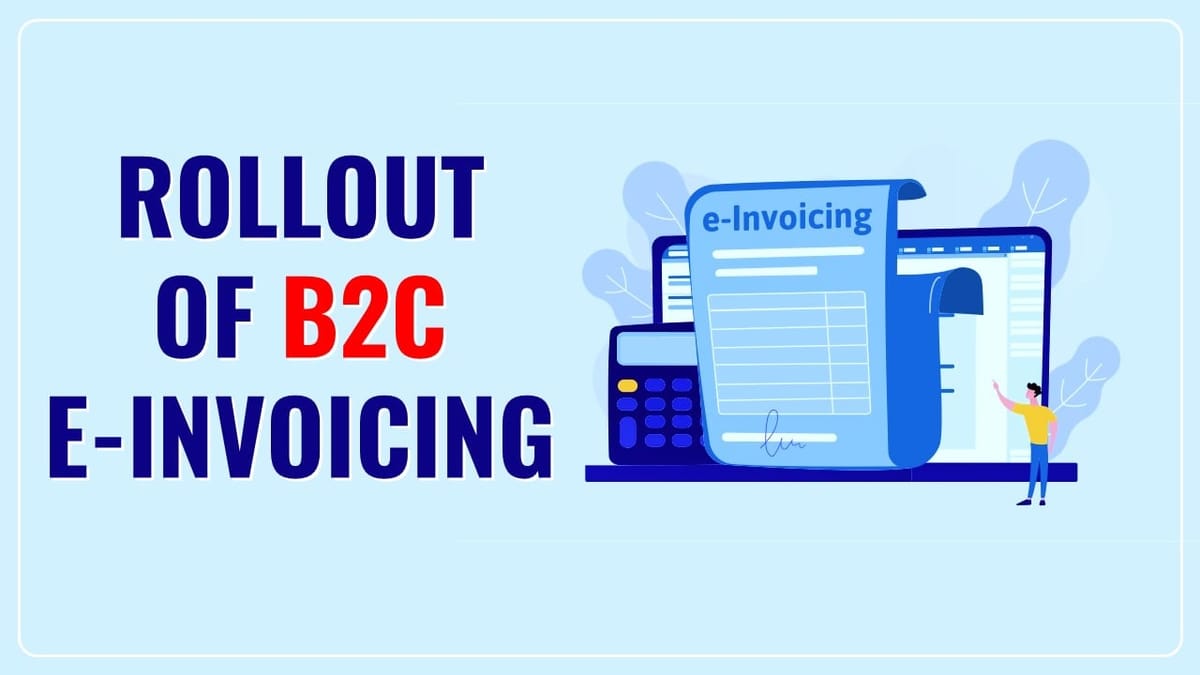Reetu | Sep 10, 2024 |

GST Council announces Rollout of B2C E-invoicing
The 54th GST Council met in New Delhi on 9th September 2024, chaired by Union Minister for Finance and Corporate Affairs Smt. Nirmala Sitharaman.
Shri Pankaj Chaudhary, Union Minister of State for Finance, was also present, as were the Chief Ministers of Goa and Meghalaya, the Deputy Chief Ministers of Arunachal Pradesh, Bihar, Madhya Pradesh, and Telangana, as well as the Finance Ministers of States and Union Territories (with the legislature) and senior officers from the Ministry of Finance and States/UTs.
The GST Council recommended the rollout of a pilot for B2C e-Invoicing, following the successful implementation of e-invoicing in the B2B sector.
The Council identified the potential benefits of e-invoicing in retail, such as increased business efficiency, environmental friendliness, cost-effectiveness for the firm, and so on.
It would also give retail consumers an opportunity to verify the invoice’s reporting in the GST return. The pilot will be implemented on a voluntary basis in specific sectors and states.
E-invoice is a system in which GSTN electronically authenticates B2B invoices for subsequent usage on the common GST portal. Under the electronic invoicing system, the Invoice Registration Portal (IRP) will assign an identification number to each invoice, which will be administered by the GST Network.
In case of any Doubt regarding Membership you can mail us at [email protected]
Join Studycafe's WhatsApp Group or Telegram Channel for Latest Updates on Government Job, Sarkari Naukri, Private Jobs, Income Tax, GST, Companies Act, Judgements and CA, CS, ICWA, and MUCH MORE!"